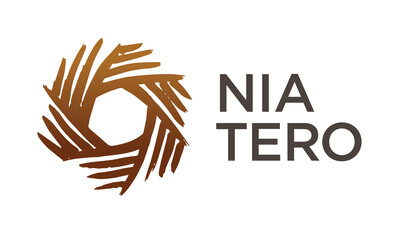NT-2024-AR - Flipbook - Page 12

Our partnerships had a substantial
global impact in 2024 through:
Our Work
DIRECT FUNDING
There was significant progress in the creation of direct funding to Indigenous Peoples
in 2024. In Canada, a historic agreement was signed by 22 First Nations governments,
federal authorities, and other allies, providing $375 million to fund one of the largest
Indigenous-led land conservation initiatives in the world. In Brazil, Indigenous Peoples
living in the Parque do Tumucumaque e Rio Paru d'Este Indigenous lands created a new
Indigenous Fund, the Pakará, selecting its first executive committee and team. This was
an important step toward their long-term vision plans and in securing additional funding
for their lands.
Overview
Working in concert with our Indigenous partners, Nia Tero provided funding
and technical guidance to our partners and their initiatives in 2024 to strengthen
Indigenous Peoples’ guardianship globally.
TERRITORIAL PROTECTION
In 2024, we provided grants to 82 organizations, securing Indigenous Peoples'
guardianship in 33 biocultural settings covering an area three times the size of
California. Our partners in Brazil, Suriname and the Solomon Islands have advanced
their biocultural monitoring efforts to protect their territories. This work focuses
on ensuring their sovereignty around data management and their ability to use the
information for communications and advocacy purposes.
STRENGTHENED NETWORKS
Throughout the year, we focused on strengthening regional and global networks of
Indigenous guardians. Inspired by the successful model established by the Indigenous
Leadership Initiative (ILI) in Canada, we supported uniting organizations to formalize the
U.S. Indigenous Guardians Network. Hosted by the World Union of Indigenous Spiritual
Practitioners, the Wayfinders Circle gathered in person in Mongolia, strengthening their
global network as communal, vocal protectors of their lands and lifeways. Nia Tero also
held a historic gathering in Colombia with partner organizations from across Amazonia.
POLICY AND ADVOCACY
Across the globe, our partners are working to protect the rights and customary tenure
of Indigenous Peoples. At COP16, they contributed to a decision made by 196 countries
to establish a subsidiary body prioritizing Indigenous Peoples’ traditional knowledge
and practices – the first of its kind among multilateral environmental agreements.
We also coordinated the training of 2,305 Indigenous individuals from seven global
socio-cultural regions in coordination with the U.N. Voluntary Fund for Indigenous
Peoples, and funded the participation of partners at various global forums. Indigenous
rights advocates and environmental defenders from Peru celebrated the official
establishment of a large Indigenous reserve – a critical move safeguarding Indigenous
Peoples in voluntary isolation. In Colombia, the UN Special Rapporteur on the Rights of
Indigenous Peoples held territorial meetings and national dialogues, gathering details to
report on human rights violations affecting Indigenous Peoples. The Colombian Supreme
Court also ruled on a landmark decision recognizing the Amazon rainforest as a subject
of rights, ordering the government to take measures to protect it by curbing deforestation.
22
Missão Nova village | Tumucumaque, Amazonia | Kamikia Kisedje (Kisedje)
Nia Tero
Annual Report 2024
23